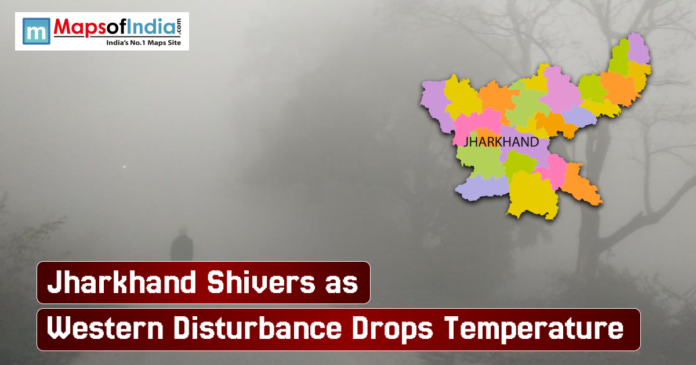New weather patterns in Jharkhand are suddenly and significantly changing the weather patterns as the western disturbances sweeping North India have caused a dramatic decrease in temperature around the state. In the past few days, some districts, such as Ranchi, Dhanbad, Hazaribagh, Bokaro, Koderma and Deoghar have registered temperatures down to below 10 °C, which is one of the first and steepest cold spells of the season.
Meteorologists explain this shift by a western disturbance travelling in the Himalayan area that causes cold winds and a change in the atmospheric pressure curves. Therefore, the inhabitants have been enjoying cold mornings, thick fogs, and declining temperatures in the evenings. The India Meteorological Department (IMD) has added that the cold winds will continue in the coming few days, with the chances of the temperatures dropping further.
A drastic change in temperature has begun to impact everyday life in the state. In the early hours, absence in schools, colleges, and offices was noted because of the biting cold and heavy fog. Major city winter markets have registered more foot traffic with people scurrying to buy warm clothing and blankets, and heating devices. Also, it has led to an increase in the business of street sellers of tea, coffee, and warm snacks in the morning and evening hours.
The aviation industry has been the worst hit by the changing weather patterns. The fog and low visibility caused various flight delays and cancellations of several flights at the Birsa Munda Airport in Ranchi. Most customers have lamented that they have to spend a lot of time waiting in terminal areas, and the government has been instructing travellers to check on their schedules even before travelling. There were also delays in the operations of some of the interstate road transport services as a result of the poor visibility of major national and state highways.
According to weather experts, these extreme and premature decreases in winter temperatures occur in line with climate change changes being experienced both on a global and regional scale. Jharkhand has had an increased incidence of variation in weather patterns of temperature and rainfall over the past few years, which indicates a larger change in seasonal patterns of behaviour due to climate change.
The local health officials have encouraged people, especially children, the elderly, and those with respiratory complications, to take care when going outside. The severity of the weather with cold and fog can also predispose to seasonal flu and other winter diseases.
Since the state is about to be hit by a longer and perhaps more severe winter, the unexpected temperature drop in Jharkhand is a reminder of the increasing level of uncertainty of Indian weather patterns and the necessity to be ready to meet the altered climatic patterns.










